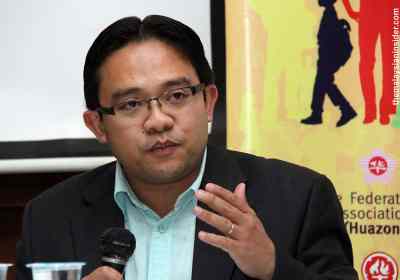Pakatan now pushing for policy contest with BN, say analysts

Amin Iskandar and Ida Lim, The Malaysian Insider
With the general election drawing nearer, Pakatan Rakyat (PR) has stepped up its game by pushing Barisan Nasional (BN) away from polemics towards a contest on policies, finally offering a glimpse of what an alternative government would be like under its rule, analysts have said.
The loose coalition of PKR, the DAP and PAS, once marred by incessant infighting, differences in ideologies and defections, has been recently doling out pledges of policy changes to boost the economic well-being of Malaysians, believing that the election would likely be won or lost on the economy.

Their playbook has so far included promises of free tertiary education for all Malaysians, a corruption-free administration, lower fuel prices, cheaper cars and equalising the income disparity between east Malaysia and the peninsula.
Merdeka Center’s Ibrahim Suffian said PR was clearly trying to showcase its ability to propose policies and changes on matters that it knew would directly affect the wallets of ordinary citizens.
“There appears to be a desire to move away from political polemics like creating issues,” he said, adding that PR was now contrasting with the BN on issues of “integrity, transparency and good governance”.
Comparing the ruling BN coalition’s “direct one-off cash handouts and direct interference in the market such as the Kedai Rakyat 1 Malaysia (KR1M)”, he said PR’s proposals were mostly substantive policy changes that would have a more far-reaching impact on voters.
Wan Saiful Wan Jan, chief executive of think-tank IDEAS, agreed with Ibrahim that PR was now pushing BN towards a policy debate, saying that it was a positive move to discourage politics based on “personal vendettas, racial and religious issues”.
He noted that PR’s promises have been labelled as populist in nature but said this was to be expected from those across the political divide.
“No one side can take a moral high ground,” he said, adding that BN’s cash handouts and KR1M were examples of “populist measures that are bad for the country in the long run.”
BN has been giving out monetary aid to the public through schemes such as book vouchers, RM500 cash payments to low-income households under Bantuan Rakyat 1 Malaysia (BR1M) and KR1M that sells sundry goods at discounted prices.

Wan Saiful expressed support for PR’s proposed slashing of car excise taxes, but labelled its proposed free tertiary education policy as a “bad” populist move that will cause society to remain dependent on the government.
Prof Dr Jayum A. Jawan, a professor of politics and government from UPM, however said that PR does not need to offer voters realistic promises at this point but merely “hope” of a brighter future under its rule.
“The most important thing is to offer hope. After winning, only fulfil (those promises), that is the political process,” he told The Malaysian Insider.
He said the people could vote PR out if it fails to deliver its electoral pledges, but stressed that the ruling government has to carry out its duties now instead of making promises.
“If BN wants to be safe, they cannot promise because they are the government; they only need to act, then only will Sabahans and Sarawakians be with them,” he said.
He said east Malaysian voters would welcome PR’s latest proposal to abolish the national cabotage policy as it would cause goods in Sabah and Sarawak to be cheaper.
Ibrahim had also said “there’s a deeply ingrained perception that the government plans better than it implements.”
He noted that PR wants to show “they are working together as a group instead of individual parties,” saying that the opposition parties co-ordinate to expose scandals.
“They (PR) look as if they are setting the agenda for the coming elections,” he said.

